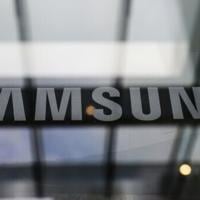Samsung Electronics Wednesday reported its highest growth rate since 2010, experiencing a significant increase in operating profits for the second quarter due to rising chip prices and a growing demand for generative AI.
The leading memory chip maker in the world announced an operating profit of 10.44 trillion won ($7.5 billion) for the April to June period, attributing it to favorable memory market conditions driving higher average sales prices. Sales of OLED panels, used in digital displays, also contributed to this growth.
This figure represents a 1,462.29 percent jump from the same period a year ago, surpassing market expectations. Overall sales rose by 23.4 percent to 74 trillion won, according to Samsung.
As a flagship subsidiary of South Korean giant Samsung Group, Samsung Electronics plays a key role in the conglomerate that dominates business in Asia’s fourth-largest economy.
Semiconductors, crucial for various industries from appliances to AI systems, have experienced a surge in demand, especially for advanced chips powering AI technologies such as ChatGPT. Samsung stands out as one of the few companies producing premium high-bandwidth memory (HBM) chips tailored for AI processors.
Samsung’s executive vice president of memory, Kim Jae-jun, reported a 50 percent increase in HBM sales for the second quarter and outlined plans to increase production capacity to meet growing demand. The company aims to actively respond to the need for high-value-added AI products and expand the share of HBM3E sales.
Recently, Samsung showcased the integration of AI in its consumer electronic products to reinforce its position in the smartphone market. Moody’s Ratings highlighted Samsung Electronics’ strong earnings this year, driven by the memory chip cycle upswing and advancements in AI chip development.
– Semiconductors, strikes –
South Korea’s leading export, semiconductors saw a record $13.4 billion in shipments in June, accounting for a fifth of total exports. The United States granted up to $6.4 billion to Samsung in April to produce cutting-edge chips in Texas.
In the same month, Samsung reclaimed its position as the top smartphone seller according to the International Data Corporation. Despite solid earnings, Samsung Electronics faces an “indefinite” strike by a union seeking negotiations on wages and benefits.
While Samsung remains optimistic about resolving the strike early, the union reports disruptions in production. Samsung’s shares were up in Seoul morning trade, with analysts projecting a strong finish for the company in 2024, especially with a forthcoming collaboration with Nvidia expected for approval in the second half of the year.





